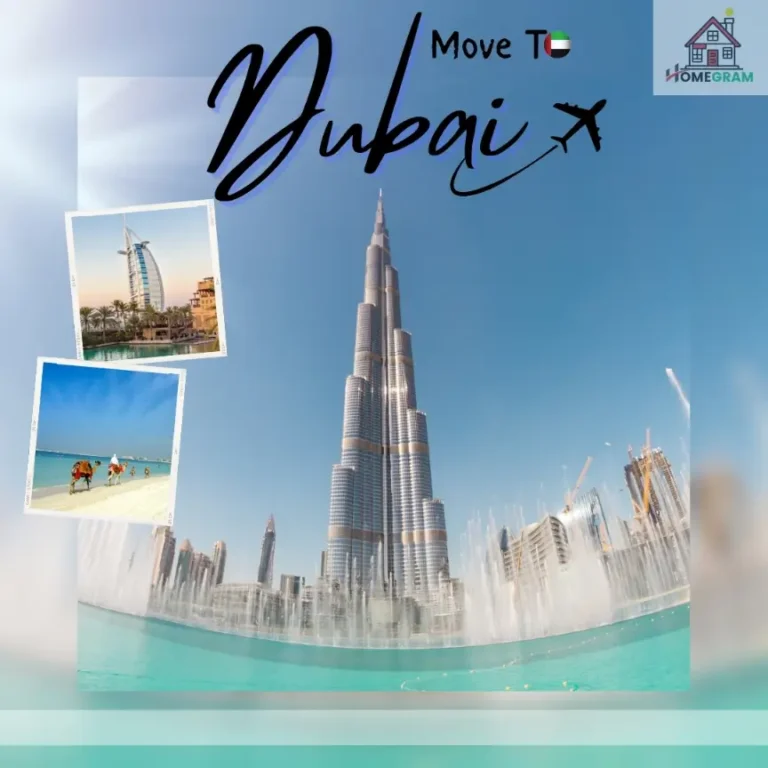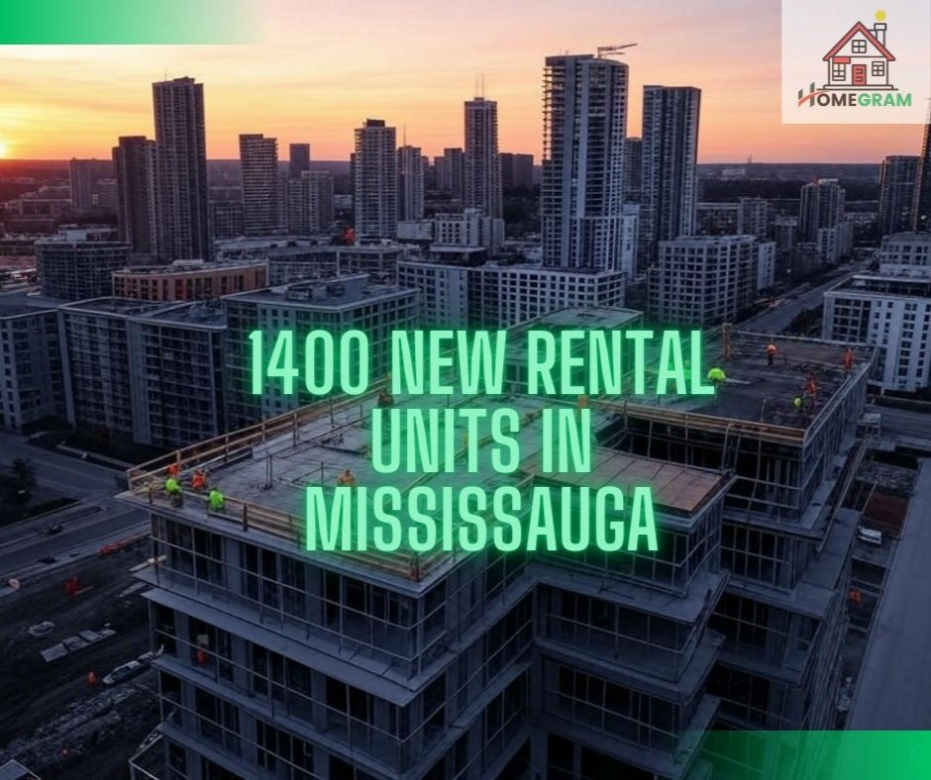Move to Dubai from Canada: Maple trees to Palm trees!

Table of Contents
Introduction
Considering a move to Dubai from Canada aka from the Great White North to the shimmering oasis of Dubai? You’re not alone! With its tax-free income, year-round sunshine, and vibrant expat community, Dubai has become an increasingly popular destination for Canadians seeking new opportunities abroad. But before you pack your bags and bid farewell to poutine and hockey, there’s plenty to consider. This comprehensive guide will walk you through everything you need to know about making the leap from Canada to Dubai.
Why Move to Dubai?
Dubai, the crown jewel of the United Arab Emirates (UAE), has transformed itself from a small fishing village to a global metropolis in just a few decades. With its futuristic skyline, world-class infrastructure, and strategic location between East and West, Dubai offers a unique blend of opportunities for expats:
- Tax-free income (with some caveats)
- Multicultural environment (over 80% of residents are expats)
- Strong job market, especially in sectors like finance, technology, and hospitality
- Modern amenities and luxury lifestyle options
- Safe environment with low crime rates
- Year-round sunshine and beautiful beaches
But is Dubai right for you? Let’s dive deeper into what you need to know before making the move.
The Financial Benefits of Moving to Dubai
Is Dubai Really Tax-Free?
One of the most attractive aspects of making a move to Dubai is the absence of income tax. This means that your earnings are yours to keep, making Dubai an excellent destination for those looking to maximize their income. However, it’s important to understand that while Dubai offers tax-free salaries, there are other forms of taxation to be aware of:
- Business Taxes: Oil companies and foreign banks are subject to taxes ranging from 20% to 55%.
- Value Added Tax (VAT): Introduced in 2018, VAT is set at 5% and applies to most goods and services.
- Excise Taxes: These apply to specific goods such as tobacco, sugary drinks, and energy drinks, with rates ranging from 50% to 100%.
Understanding these taxes will help you plan your finances effectively and avoid any unexpected costs.
Navigating the Legal Landscape
What Visas Do You Need to Move to Dubai?
Before you can move to Dubai, you’ll need to secure the appropriate visa. Canadians can enter Dubai on a tourist visa, but if you plan to stay long-term, you’ll need to apply for a work or residence visa. The type of visa you need depends on your reason for moving:
- Work Visa: Sponsored by your employer, this visa allows you to live and work in Dubai. The validity ranges from one to three years, depending on the contract.
- Investor Visa: If you’re planning to start a business, you can apply for an investor visa by making a minimum investment of AED 70,000 (approx. CAD 25,000).
- Retirement Visa: Available for those aged 55 or older, this visa requires a significant property investment and proof of financial stability.
- Student Visa: For those planning to study in Dubai, this visa allows for up to five years of residence.
- Property Investor Visa: Available if you purchase property worth AED 1 million or more. Check out this article on how Canadians can get a mortgage in Dubai.
Steps to Obtain a Visa
- Secure a Sponsor: Whether it’s an employer, a family member, or a business entity, a sponsor is required to apply for most visas in Dubai.
- Prepare Your Documents: You’ll need a valid passport, passport-sized photos, and other documents such as marriage certificates or diplomas, depending on the type of visa.
- Medical Examination: A medical exam is mandatory for most visas and includes tests for HIV and Hepatitis. A positive result may result in visa denial.
- Apply for the Visa: Submit your application online or through a visa processing center in Canada.
Cost of Living in Dubai
How Expensive Is It to Live in Dubai?
The cost of living in Dubai can vary greatly depending on your lifestyle and housing choices. While some aspects of living in Dubai are more affordable than in Canadian cities like Toronto or Vancouver, others can be more expensive.
- Housing: Rent is one of the biggest expenses in Dubai. A one-bedroom apartment in the city center can cost around AED 7,300 (approx. CAD 2,500) per month, while outside the city center, prices drop to around AED 4,500 (approx. CAD 1,540).
- Utilities: Expect to pay around AED 700 (approx. CAD 240) per month for electricity, heating, and cooling.
- Transportation: Public transport is relatively affordable, with a monthly pass costing around AED 340 (approx. CAD 115). Owning a car is also common, and fuel prices are lower than in Canada.
- Groceries and Dining Out: Food costs are comparable to Canada, with groceries for a family of four costing around AED 3,000 (approx. CAD 1,030) per month. Dining out at a mid-range restaurant typically costs around AED 35 (approx. CAD 12) per person.
Finding a Place to Live
Where Should You Live in Dubai?
Dubai offers a wide range of residential options, from high-end luxury apartments to more affordable family-friendly communities. Your choice of location will depend on your budget, lifestyle, and proximity to work or schools.
Popular Expat Areas:
- Dubai Marina: Known for its luxurious waterfront apartments and vibrant nightlife, Dubai Marina is a favorite among young professionals and expats.
- Jumeirah: This upscale residential area is popular with families due to its proximity to top international schools and beaches.
- Mirdif: More affordable than Jumeirah or Dubai Marina, Mirdif offers a suburban feel with parks and shopping malls, making it ideal for families.
- Deira: One of the oldest parts of Dubai, Deira offers a more traditional feel and is known for its affordable housing options.
Key consideration: Housing is likely to be your biggest expense. Many expats live in areas like Dubai Marina, Downtown Dubai, or Jumeirah Lake Towers, but more affordable options exist in neighborhoods like Deira or Bur Dubai.
Healthcare and Education
How Is the Healthcare System in Dubai?
Dubai’s healthcare system is of high quality, with both public and private hospitals offering excellent services. As an expat, you’ll need health insurance, which is often provided by employers. However, additional coverage can be purchased if needed.
Important! Bring any necessary medical records and a supply of essential medications when you move.
Education for Expat Families
Dubai is home to a wide range of international schools that follow American, British, and IB curricula. Tuition fees vary widely, with some schools charging upwards of AED 100,000 (approx. CAD 34,000) per year. It’s important to research and apply early, as spots in top schools are highly competitive.
Cultural Considerations Before You Move to Dubai
What Cultural Differences Should You Prepare For?
Dubai is a Muslim city with traditions and customs that may differ significantly from those in Canada. Being aware of and respecting these cultural differences is crucial for a successful transition.
- Dress Code: Modesty is key in Dubai. While swimwear is acceptable at the beach or pool, it’s important to dress conservatively in public places.
- Public Behavior: Public displays of affection are frowned upon, and same-sex relationships are illegal. It’s important to be mindful of these laws to avoid legal issues.
- Alcohol Consumption: Alcohol is only available in licensed venues such as hotels, restaurants, and bars. Drinking in public is prohibited.
Despite these differences, Dubai is known for its diverse and tolerant society, where people from all over the world live and work together harmoniously.
Working in Dubai
How to Find a Job in Dubai
Dubai’s booming economy offers numerous job opportunities, particularly in sectors such as finance, real estate, technology, and hospitality. However, the job market is competitive, so it’s advisable to secure a job before making the move.
Top Tips for Job Hunting in Dubai:
- Leverage Professional Networks: Networking is crucial in Dubai. Use platforms like LinkedIn and attend industry events to connect with potential employers.
- Work with Recruitment Agencies: There are several recruitment agencies in Dubai that specialize in placing expats in various industries.
- Tailor Your CV: Ensure your resume is tailored to the Dubai job market, highlighting your international experience and any relevant qualifications.
Understanding Work Culture
The workweek in Dubai typically runs from Monday to Friday, with Friday being a half-day or a day off for some companies. During Ramadan, working hours are reduced, and it’s important to be respectful of colleagues who are fasting.
Salaries in Dubai are generally higher than in Canada, and with no income tax, your take-home pay is significantly more. However, it’s important to factor in the cost of living when negotiating your salary.
Conclusion: Your Dubai Adventure Awaits
Moving to Dubai from Canada is a big step, but with proper planning and an open mind, it can be an incredibly rewarding experience. From tax-free salaries to year-round sunshine, Dubai offers a unique lifestyle that attracts expats from around the world.
Remember, every expat’s experience is different. Be prepared for challenges, but also for amazing opportunities for personal and professional growth. Dubai is a city that’s constantly evolving, and your adventure there is limited only by your imagination.
Are you ready to trade maple leaves for palm trees? With this guide in hand, you’re well on your way to making your Dubai dream a reality. Good luck on your journey from the True North to the jewel of the Middle East!
So when do you think you are packing bags to move to Dubai?
References:
| Government of Canada – Travel Advice and Advisories for the UAE This page provides up-to-date information on travel requirements, safety, and security for Canadians moving to or traveling to Dubai. Government of Canada – UAE Travel Advisory | |
| Dubai Statistics Center Official statistics about Dubai, including population, economic indicators, and more. Useful for accurate data on the cost of living, demographics, and economic factors. Dubai Statistics Center | |
| Dubai Government – Official Portal The official portal of Dubai, offering a wide range of information about living and working in Dubai, including government services and regulations. Dubai Government – Official Portal | |
| Dubai Airports For information on arriving in Dubai, airport services, and travel requirements. Dubai Airports | |
| Emirates NBD – Banking for ExpatsGuidance on banking in Dubai, including how to open an account, available services for expats, and financial planning. Emirates NBD – Banking for Expats |
Popular










